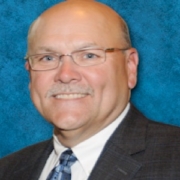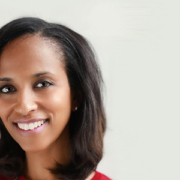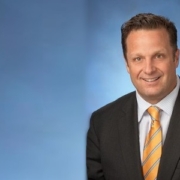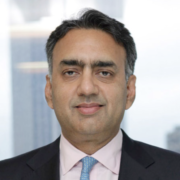Men Who Get It: Dave Meisel, Senior Director of Transportation and Aviation, PG&E
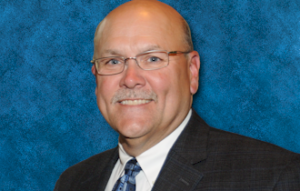 It’s all about giving good people chances—not about whether they’re a man or a woman.
It’s all about giving good people chances—not about whether they’re a man or a woman.
That’s the philosophy of Dave Meisel, who manages the full lifecycle of transportation needs at PG&E, from vehicle specification to maintenance to disposal. Starting his career as a mechanic, Meisel has worked in corporate America with a series of national utility fleets including Roadway Express, Frito-Lay and Consumers Energy before joining PG&E.
Breaking His Own Notions
He admits his career has been honed in a male-dominated industry, where for many years, he primarily worked with men—aside from a woman or two in administration roles. And yet, even with that background, diversity has always been important to Meisel from a personal and professional standpoint.
“I grew up in a house full of boys in the 1960s, and you learn a certain set of rules that are different than today,” Meisel says, adding he now has a house full of girls. “I quickly realized I didn’t know much about girls.”
He believes even more passionately that just because they’re girls, they shouldn’t have to work harder or be denied the same opportunities as boys, even though he grew up in a time when gender roles were more defined.
In fact, he says he has been surprised to find his girls had different interests than he had expected.
“My girls are good at lots of things that aren’t traditional,” he says, citing his youngest daughter who loves to hunt. “After seeing their interests, I figured out there wasn’t as big of a difference between boys and girls as I thought or had been taught, and that changed my view.”
He was able to take what he learned with his own girls, and apply it to interacting with the women with whom he works. “And along the way, I’m sure I learned more from them than they learned from me,” Meisel says.
He has increasingly seen smart women coming out of college and conquering the workplace in what has typically been a male-dominated industry.
“Even though they weren’t familiar with our industry, they exhibited a legitimate desire to learn it,” Meisel says. “With that, they brought a different perspective on what “good” looks like—they raise the bar.”
Sponsoring Talent
Over the years, Meisel has mentored lots of men and women, helping them learn about other parts of the company and acting as a sounding board.
But he knows the difference between being a mentor and sponsor, where you invest yourself more completely in their success. Meisel says he has helped many women over the years rise from clerical positions into technical or management roles when others hadn’t bothered to see their potential.
“I really believe most people just need a chance. I’ve tried to be vigilant about not stereotyping,” Meisel says. “When I know this person is smart and they can do well in a certain role, I develop a plan to help them reach that goal. And along the way, I make sure to give them support. I would never leave them to sink or swim.”
He says the women he works with perform as well or better than the men, describing them as smart, bright, articulate, and thirsty to learn. “They don’t take anything for granted, whereas some men might believe that since they’re in a men’s business they deserve the growth opportunity.”
PG&E attracts lots of diverse candidates—men and women, different ages and different cultures. And since there are so many different types of jobs at the company, they can start in one area and be moved around. “We’re fortunate in the quality of people we attract and how hard they work when they’re put in those roles,” he says.
Choosing Teams
Meisel knows the prevailing viewpoint in the company is to be collaborative. “We try to actively engage people other than those we traditionally work with. When we put a diverse group on a project, we get so many views that are different than we would otherwise get and ultimately, a better result. The bottom line is if you always do what you always did, you always get what you always got.”
Meisel says it’s easy to tell if a team is suitably diverse: Look at the people you’re working with to solve problems. If they all look like you, then that’s the problem.
“As a leader, you have to stand up and say, ’I want more opinions. I want more diversity.’ We’re more successful when we have a broader based view than when we don’t. The ultimate goal is to run the business well, and a diverse view of the world helps us run the business better. You can’t keep perpetuating the same old team if you want different opinions.”
Taking Chances
Meisel thinks many companies worry too much about “taking a chance” when they promote someone. “Smart people are smart people, and they don’t have any boundaries. Good people get to where they are because they’re hard workers, so moving them one level higher isn’t really taking a chance. They are where they are because they performed and there’s no reason to expect they won’t continue to perform.”
Meisel has also found it’s in everyone’s interest to mix up roles. If there’s something they traditionally thought men could or would do better, leaders might be surprised when they find women are every bit as willing and successful in the tasks. “If no one gives them a chance,” he says, “how do you expect them to grow?”
And Meisel finds diversity extends to age, and how impressive he finds the electronic savvy of young people. “I don’t consider myself technically illiterate and yet their skill set is so far beyond mine,” he says. “You have to look at that skill set and say it doesn’t matter how old they are. If they can do the task, give them the chance.”
Ultimately, Meisel says there’s truth in the adage that you can’t judge a book by its cover, even though many people still do. “Often the book is so much better than the cover.”
By Cathie Ericson

